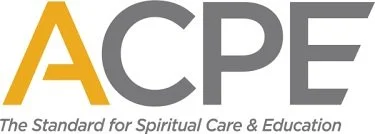This ACPE accredited program does not discriminate against persons because of race, ethnicity, religious/spritual tradition, sexual orientation, gender identity, gender expression, age, size, or disability.
Tips for Writing an Application
Follow directions on cover of application form from ACPE
Write concise answers- a page or less for each question.
Be yourself in the writing.
Be as specific as you can be about learning goals.
Applications are treated with care and confidentiality is protected, so share as freely as is comfortable in order for the team to get to know you.
Contact the CPE Educator if you have questions.
Application Process
Use the ACPE standard application for all levels of CPE.
Send application to the CPE educator by e-mail.
The CPE educator will review the application within a few days of receipt and schedule an interview if the candidate meets the admission’s criteria.
Interviews are by Zoom with members of the Spiritual Care Advisory Committee, the staff chaplains and the CPE educator. Generally 3 or 4 persons are interviewing the candidate.
Applicants are notified within a few days after the interview of tthe status of their application for the program. Applicants generally use this time to also discern their desire to continue their application in this program. Compatability of learner and program is key to a successful CPE experience.
Successful applicants meet with the CPE Educator to review program expectations prior to an official acceptance offer.
Applicants complete the ACPE “Use of Clinical Material” Consent Form
Acceptance offer is extended. There is a rolling admission’s process so candidates are accepted as they apply and meet the admission’s criteria.
Candidates have 3 weeks to return completed CPE acceptance packet and mail $100 acceptance fee (which is deducted from tuition).
Admission’s Criteria
Emotional and spiritual maturity
Respect for persons who are different; religious, cultural, race, sexual orientation, etc.
Desire to learn
Collaborative work and communication style
Physical stamina to make patient visits
Good standing with a faith group
Theological education sufficient to do nuanced spiritual reflection


